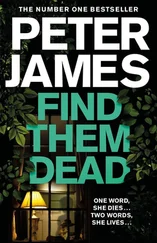“Let’s not talk,” his father says.
Armando leans back and stretches out on the ground. The day is too hot to get comfortable in his slacks, and he is starting to sweat through his gray shirt. He closes his eyes and listens to the traffic and his father picking blades of grass. He imagines walking here, to this place. His legs hurting, sleeping on the side of I-70 as cars and diesel trucks zoom by. How many will be with them? Then what? Do they live here forever? In Independence? What would they do? Look up at the sky and wait? Would they get bored? Is there a choice? He recalls a vampire book where the eternal bloodsuckers get bored out of their minds and need antidepressants to get through their days. Then a Sunday school talk comes to him. The well-dressed speaker had said that when contemplating the notion of “forever,” the kids should think of how long it would take a hummingbird to peck away at a piece of granite as big as the earth. “Well,” said the speaker, “eternity is a lot longer than that.”
Colorado driver’s license finally in hand, Armando chooses Gold Camp Road as his make-out parking location with Marie.
Marie is patient and understanding of his quirks: no gum, fascination with her birthmark, U2 and Bon Jovi ballads. And he of hers: breaks for air when she says so, and once in a while a lazy George Strait song.
After school one day, while he and Marie hang out in the living room watching reruns of The Wonder Years, Armando’s mother walks into the room holding a banana and an unopened condom. She’d watched a television special the night before in which Tom Brokaw lectured a town hall meeting on safe sex. She asks if Armando can put the condom on the fruit. Though unsure, he says he can.
“I’m not condoning premarital sex,” his mother says.
Marie buries her face in her hands.
“If you’re using this, you’re past the point of trouble. But if you’re past the point of trouble, use this.”
Armando’s mother puts the banana back in the fruit bowl and leaves the condom on the counter.
Armando’s father corners him one night after he breaks curfew getting back from Gold Camp Road. His father holds up the Sports Illustrated swimsuit issue and points at the cover, two beauties instead of the regular one, leopard-print bikinis, gleaming smiles, gleaming bodies.
“The lineaments of gratified desire. Say it with me. The lineaments of gratified desire.”
Armando squints and shakes his head.
“An orgasm is pretty awesome, son. You know this. But it’s not mystical. Semen shoots from your penis. It feels good. These pictures have nothing to do with that. People were having orgasms long before photography and papyrus. The women in these photos aren’t real. That isn’t their real skin. That isn’t the real sun, real light. They’re smiling, but they don’t know why.”
“Okay.”
Armando waits for more from his father, maybe something about masturbation, pregnancy, late-night HBO, Armando has no idea, but his father only nods, somehow satisfied, and tosses the magazine at him and walks away.
Part of Armando’s chores now involves stacking his mother’s dialysis fluid boxes every week after a large truck unloads them in the driveway. The machine in his parents’ bedroom stands on his mother’s side of the bed and makes puffing noises as her blood circulates through the contraption. Often this is where his mother will dispense her advice — hooked up, ready for bed — including her opinion that nothing good happens to teenagers after eleven at night. Sometimes she says after nine at night.
On weekend nights Armando and Marie drive out on Gold Camp Road and pull off in the trees, kill the lights, and try their best in the cramped back seat. He’s the novice, and while he’s unsure of the extent of her experience, he knows she has endured a couple boyfriends, good and bad. At sixteen, he doesn’t comprehend the vast possibilities that separate good from bad.
One night they drive out to the spot where his father torched the tree by the stream. They maneuver past their normal shirts-off, bra-off endpoint, and her hands start to show an interest in his jeans. In that moment he wouldn’t say “Stop” with a gun to his head. He feels Marie at the top of his jeans, running her fingers in the thin space between denim and skin, then fumbling with the button, then unzipping him. The roof closes in and spins. In this dark space in the Rockies he only wants to live forever, and for a moment he believes he will, weightless, on fire, and then he hears her, barely at first, crying.
“Marie?”
“I’m sorry,” she says. “I’m okay. Lie back down. I’m fine.”
He lets her cry for a while with night all around before reaching out for her and holding her, feeling her breasts and warm skin on his skin.
“It’s not you,” she says.
“Okay,” he says.
There’s no talk about her crying that first night in the shadow of Pike’s Peak or any other night. Not even after several late-night parkings and other attempts at unzipping him and the tears that follow. He never asks her to try again, but she does. Even after he tells her “No, you don’t have to,” she ignores him and pushes him down and straddles him, her hands on his chest and stomach and hips, moving down.
Often, after their drive out into the Front Range and the mix of limbs and jaws, around midnight Armando lies staring up at branches and white stars through the rear window, listening in pleasure and fear for a sign, waiting for her mouth on him but always hearing her short breaths, then gradual sobs coming from the dark before he takes her in his arms, then dressing and driving home.
On the windy drive home there’s plenty of time to ask anything he wants, but they stay quiet, sometimes holding hands, having an occasional chat about Marie’s dream of living in Arizona, but normally they just listen to Jon Bon Jovi belting out “Bed of Roses” or “I’ll Be There for You” as they wait for the city lights to greet them below.
Pairs of men in tailored suits begin to show up in the Torres family kitchen. When Armando gets home from school they are crouching around the worn dining table, jabbing at papers while his parents nod along. They never glance in his direction, but their disinterest doesn’t bother him. Soon he finds out they are life insurance men.
One night after the latest set of buttoned-up men have fled, Armando hears his father say “Uninsurable” over and over before flinging a stack of papers and stomping off to the back yard. His mother sobs while warming water on the stove. Armando thinks about going to her but stays on the couch. She adds macaroni to the boiling water, then steadies herself on the kitchen counter, head down. His father reappears and takes her face in his hands and kisses her on her lips. Armando knows they love each other, but anything longer than a public peck is unusual. He glances over, then down at the carpet, then back. His father runs his fingers down his mother’s blue blouse and then pulls her close, keeping his right hip angled away from her injection site.
Armando isn’t interested enough to ask why his parents are in the market for life insurance — or what life insurance even is — and his parents don’t volunteer the information, but he is interested in this lengthy kiss, and he stares at the strangeness of his parents pressed together for so long. Not sure why he wants to cry or how he knows to stay silent, he watches as his mother tries to look away and his father pulls her back and kisses her again, but she’s crying too much now and the kiss has moved from pressed lips to pressed faces, chin to forehead. When his father says, “Go somewhere else, son,” Armando walks to his room, where, after thinking about his parents and his forays with Marie, he questions why no one has ever taught him the right way to touch someone you love.
Читать дальше












